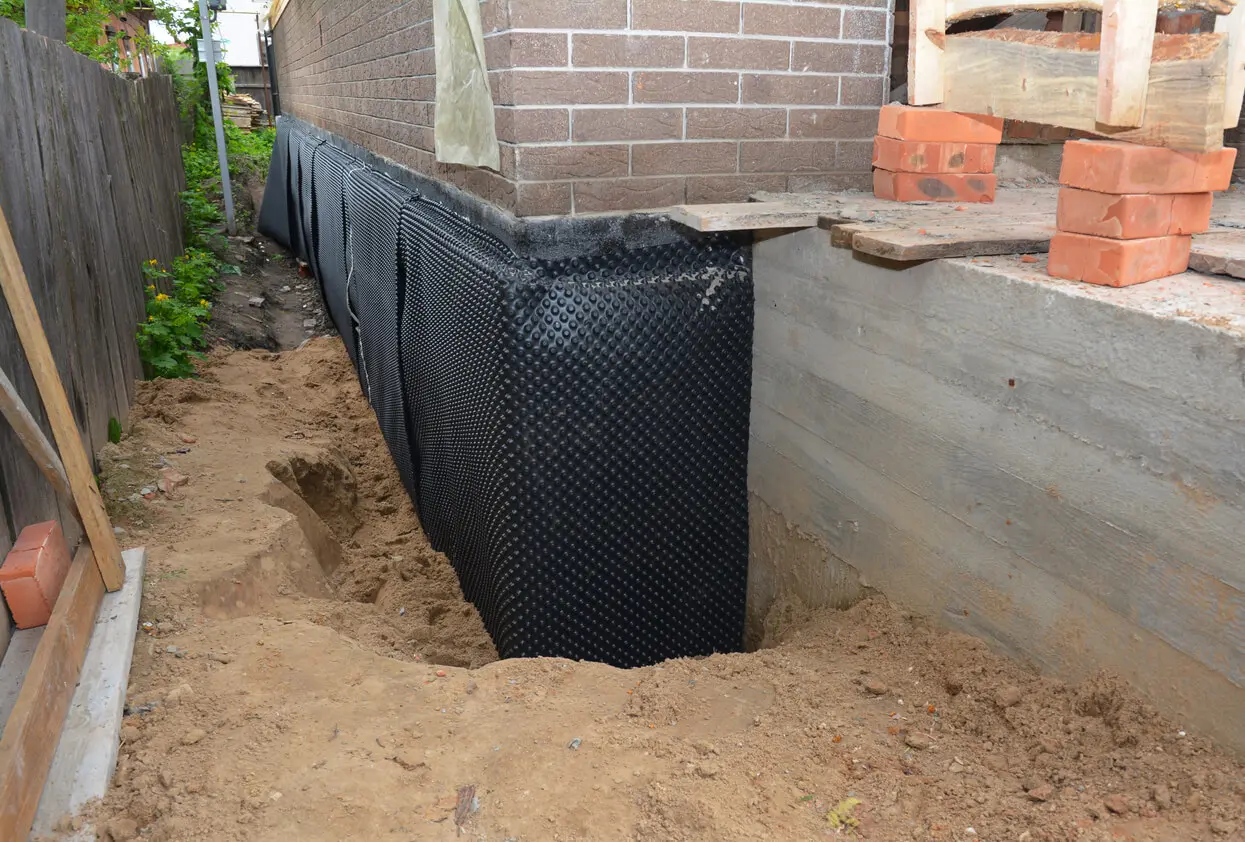
Basement Tanking: How to Keep Your London Property Dry
Basements are a valuable asset for many London properties, providing extra living space, storage, or...
If you’re keen to maximise the space in any developments, then basement extensions are one of the simplest ways to do it. There are no height restrictions with a basement extension – and no risk of overlooking – and it’s often easier to make your space feel more integrated and coherent with basement extensions. But are basement extensions right for everyone?
The decision to undertake a basement extension depends on your building type and what you want to achieve. Basement extensions offer many benefits, making them suitable for various purposes, including bedrooms, swimming pools, or sports areas, while enhancing your property’s energy efficiency. Moreover, they can significantly increase the value of your property by providing additional living space.
Basement extensions make ingenious use of the often-overlooked space beneath your property. However, it’s important to note that not every building is suitable for a basement extension. Factors such as flood risk and the type of surface your development is built on play a crucial role. For instance, if your building is sitting on old concrete, basement extensions may not be feasible without underpinning, which can be challenging on such a surface.
Once you’ve determined that your project is suitable for a basement extension, the next step is to plan and execute the project effectively. This typically involves:
Due to the increasing popularity of basement extensions as a means to maximise space, most local councils have issued guidance on how these projects should be undertaken. This guidance is essential to prevent issues such as improper construction or neighbourly disputes. Key points covered in council guidance typically include defining what qualifies as a ‘permitted development,’ which may not require planning permission (though it’s crucial to confirm this with your local planning department). In general, planning permission may be required if you live in a flat, a listed building, or if your basement extension involves the installation of a front lightwell or extends beyond the house’s front wall or outside its general footprint, among other specific situations.
Basement extensions offer property owners a wealth of advantages when seeking additional space, whether to increase the value of their property or enhance its usability. The right basement extension can provide you with a spacious, well-lit, and comfortably heated area, offering numerous possibilities to make the most of your property’s potential.
Basement extensions have gained popularity for several reasons, and their numerous benefits make them a compelling choice for companies looking to maximise their space.
Unlimited Space Potential: Unlike traditional extensions that may be limited by height restrictions or the available land area, basement extensions use the often-underutilized space beneath your property.
Enhanced Property Value: A well-executed basement extension can significantly increase the value of your property. The additional living space and improved energy efficiency can be attractive selling points for potential buyers, making it a wise investment for the future.
Energy Efficiency: Basement extensions can improve your building’s energy efficiency. The earth’s natural insulation properties help regulate temperature, making it easier to maintain a comfortable environment in your basement space. This can lead to energy savings and reduced heating or cooling costs.
Versatility: Basement extensions are highly versatile and can be customised to suit your specific needs and preferences. This could be the likes of parking, gyms, swimming pools, or simply additional storage space.
Increased Comfort: Basement fit-out contractors can help you design a basement space that is not only functional but also comfortable. Adequate heating, lighting, and ventilation systems can be incorporated into the design to ensure that your basement is a comfortable and inviting area to spend time in.
Privacy: Basement extensions can offer a level of privacy that may be difficult to achieve with above-ground extensions.
Soundproofing: Due to their underground location, basements naturally provide a level of soundproofing. This can be advantageous if you plan to use the space for noisy activities or if you want to develop a quiet and calm space within your project
In summary, basement extensions represent a versatile and practical solution for developers seeking to maximise their property’s space and value. However, it’s crucial to carefully consider factors such as regulations.. When executed correctly, a basement extension can unlock the hidden potential beneath the surface, transforming your project into a more functional and valuable space.
Contact us today to schedule a consultation today. Let’s figure out your next steps together.
Basement Extensions
For further information about BH Basements, please do not hesitate to get in touch. We are always happy to help.
For more captivating insights and expert advice, delve into BH Basements’ diverse range of blog articles.

Basements are a valuable asset for many London properties, providing extra living space, storage, or...

Building a basement is a significant investment and ensuring that it remains dry and protected...

Building a basement is a significant investment and ensuring that it remains dry and protected...